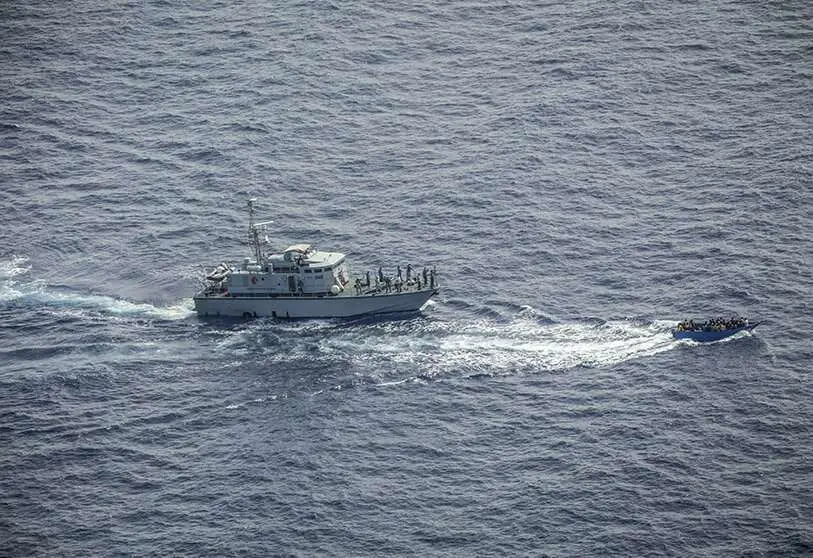Libya: abuse of migrants in detention centres

Multiple NGOs are denouncing the migration situation in Libya, where migrants suffer continuous abuse in Libyan detention centres controlled by the government in Tripoli or by criminal groups. Boats carrying refugees to Europe are intercepted by the Libyan Coast Guard and returned to detention centres, partly thanks to European funding. On other occasions, migrants manage to reach European soil, usually Sicily, as this is the European region closest to the Lebanese coast, where most are also turned back.
A report published by Doctors for Human Rights (MEDU), based on the accounts of migrants collected in the Sicilian city of Ragusa, describes the situation as unbearable for detainees in such centres. Some of the migrants who have spoken to MEDU about their experiences are currently testifying at a trial in the Sicilian capital.

For this reason, MEDU has urged the Italian government to demand respect for the human rights of migrants as an indispensable condition for cooperation with Libya. "Even if it is Italy's duty to cooperate with Libya to contribute to its stabilisation and democratisation process, our government cannot hypocritically ignore the very serious human rights violations committed against tens of thousands of migrants detained and placed in informal detention centres," said a MEDU spokesperson.
Italian lawmakers have approved renewed funding to train Libyan coastguards. The training programme is part of Italy's military missions abroad. Parties such as Italia Viva refused to vote for the initiative. One of its members, Giuseppina Occhionero, said it was essential to exert maximum pressure on the Italian government to stop and prevent these systematic human rights violations. Among those who approved more aid for the Libyan Coast Guard were the Brothers of Italy, a party whose popularity is growing rapidly.

In its report on abuses in Libyan detention camps, Amnesty International called on European countries to suspend their cooperation with Libya on migration and border control. According to the report published on 15 July, Libya has long been unsafe for refugees and migrants. Both state and non-state actors subject them to a catalogue of human rights violations and abuses including unlawful killings, torture and other ill-treatment, rape and other sexual violence, indefinite arbitrary detention in cruel and inhumane conditions, and forced labour, among others. Despite well-documented patterns of horrific abuses committed with impunity for over a decade, European states and institutions continue to provide material support and implement migration policies that allow Libyan coastguards to intercept men, women and children attempting to flee to safety across the Mediterranean Sea and forcibly return them to Libya.

It is worth remembering that Libya is a failed state, as its government cannot guarantee its own functioning, has lost its monopoly of force against criminal groups and lacks the capacity and resources to meet the essential needs of its citizens. For this reason, not all detention centres depend on or are controlled by the government.
It is questionable why the EU continues to send aid packages to countries such as Libya or Turkey to hold within their borders those seeking refuge in the EU, knowing that these countries may not respect human rights. In the case of Libya, this is not only possible, but has been demonstrated and denounced on multiple occasions.

In 2016, with the arrival of thousands of refugees on Greek and Italian shores, the Schengen area and the Common European Asylum System (CEAS) were in danger of collapsing. In response to the migration crisis, member states imposed unilateral measures contrary to the free movement that characterises the EU: unilateral border closures, refusal to let refugees pass through to other member states, the devaluation of national asylum systems, and so on.
From the beginning, France rejected migrants arriving via Italy, which is illegal. Gradually this practice started to become more and more common among member states, the redistribution of refugees within the EU became impossible. Faced with this situation, Italy could not cope with the waves of migrants and decided to close its ports. In the absence of a minimum consensus to reform the CEAS, the EU decided to put in place a series of measures to keep refugees outside the EU or on its periphery, so that the management of refugee waves was outsourced.

The European Council coined two new concepts: regional disembarkation platforms to "remove the incentive for migrants to embark on dangerous journeys" and controlled centres to take charge of those disembarked in the EU "on the basis of a shared effort". The idea behind this is that, if migrants are 'confined' outside the borders of the Union, there is no need to face a divisive debate on the internal solidarity of member states.
The conditions under which asylum seekers are held in Libya have proven to be inhumane and unacceptable, making this system seem unsustainable in the long term. It is a contradiction that the EU, where human rights are respected, indirectly contributes to these abuses. It is therefore necessary to address whether this is the best possible system, just as the debate on internal solidarity is unavoidable.








